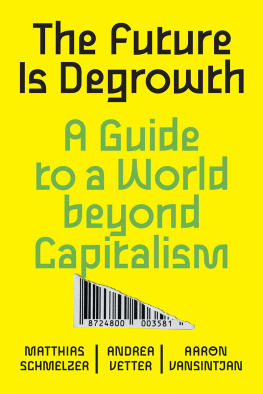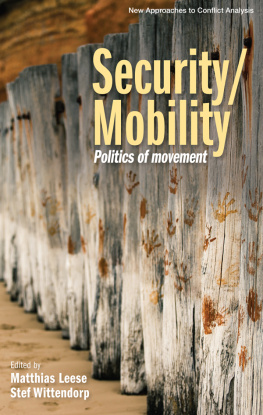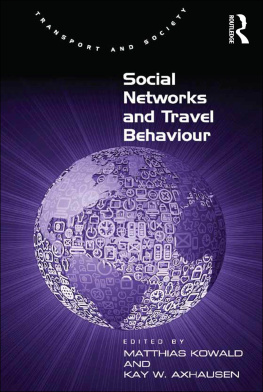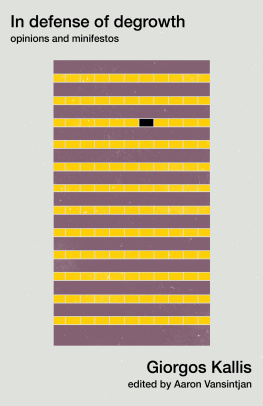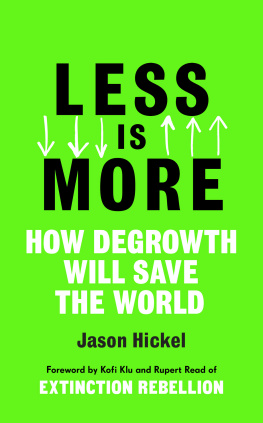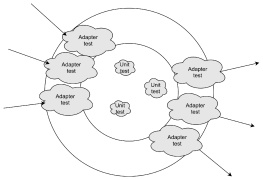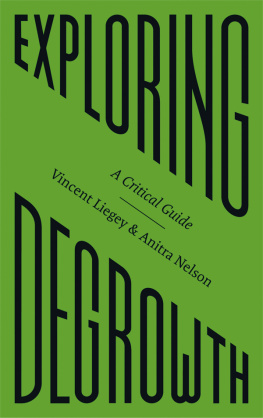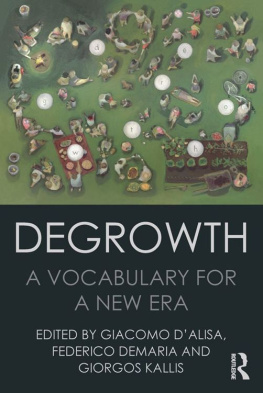Matthias Schmelzer - The Future is Degrowth
Here you can read online Matthias Schmelzer - The Future is Degrowth full text of the book (entire story) in english for free. Download pdf and epub, get meaning, cover and reviews about this ebook. publisher: Verso Books, genre: Politics. Description of the work, (preface) as well as reviews are available. Best literature library LitArk.com created for fans of good reading and offers a wide selection of genres:
Romance novel
Science fiction
Adventure
Detective
Science
History
Home and family
Prose
Art
Politics
Computer
Non-fiction
Religion
Business
Children
Humor
Choose a favorite category and find really read worthwhile books. Enjoy immersion in the world of imagination, feel the emotions of the characters or learn something new for yourself, make an fascinating discovery.
- Book:The Future is Degrowth
- Author:
- Publisher:Verso Books
- Genre:
- Rating:4 / 5
- Favourites:Add to favourites
- Your mark:
- 80
- 1
- 2
- 3
- 4
- 5
The Future is Degrowth: summary, description and annotation
We offer to read an annotation, description, summary or preface (depends on what the author of the book "The Future is Degrowth" wrote himself). If you haven't found the necessary information about the book — write in the comments, we will try to find it.
The Future is Degrowth — read online for free the complete book (whole text) full work
Below is the text of the book, divided by pages. System saving the place of the last page read, allows you to conveniently read the book "The Future is Degrowth" online for free, without having to search again every time where you left off. Put a bookmark, and you can go to the page where you finished reading at any time.
Font size:
Interval:
Bookmark:

The Future Is Degrowth
The Future Is Degrowth
A Guide to a World beyond Capitalism
Matthias Schmelzer
Andrea Vetter
Aaron Vansintjan

First published by Verso 2022
Matthias Schmelzer, Andrea Vetter, and Aaron Vansintjan 2022
All rights reserved
The moral rights of the editor and authors have been asserted
1 3 5 7 9 10 8 6 4 2
Verso
UK: 6 Meard Street, London W1F 0EG
US: 388 Atlantic Avenue, Brooklyn, NY 11217
versobooks.com
Verso is the imprint of New Left Books
ISBN-13: 978-1-83976-584-1
ISBN-13: 978-1-83976-585-8 (UK EBK)
ISBN-13: 978-1-83976-586-5 (US EBK)
British Library Cataloguing in Publication Data
A catalogue record for this book is available from the British Library
Library of Congress Cataloging-in-Publication Data
Names: Schmelzer, Matthias, author.
Title: The future is degrowth: a guide to a world beyond capitalism / Matthias Schmelzer, Aaron Vansintjan, Andrea Vetter.
Description: New York : Verso, 2022. | Includes bibliographical references and index.
Identifiers: LCCN 2022005477 (print) | LCCN 2022005478 (ebook) | ISBN 9781839765841 (Trade Paperback) | ISBN 9781839765865 (eBook)
Subjects: LCSH: Negative growth (Economics) | Economic development. | Imperialism. | Exploitation. | Capitalism.
Classification: LCC HD75.6 .S375 2022 (print) | LCC HD75.6 (ebook) | DDC 330.9--dc23/eng/20220223
LC record available at https://lccn.loc.gov/2022005477
LC ebook record available at https://lccn.loc.gov/2022005478
Typeset in Minion by Hewer Text UK Ltd, Edinburgh
Printed and bound by CPI Group (UK) Ltd, Croydon CR0 4YY
Contents
Over the last fifteen years, degrowth has made significant contributions: it has helped to politicize the debate on sustainability and development, question green growth and technologically focused futurism, strengthen utopian alternatives, and bring together social movements, academics, and those engaged in the solidarity economy and civil society. During times of intense and continuous crisis, the degrowth community has become a gathering place for people who are seeking answers to how we got in this mess in the first place, and how we can get out of it. This book describes the debates that have happened within this community, and relays them to a wider audience.
This is an expanded version of an original German book, first published in 2019, Degrowth/Postwachstum zur Einfhrung, written by Matthias Schmelzer and Andrea Vetter. For the English version, we worked with Aaron Vansintjan to extend it for an international audience, changing it significantly in terms of structure, argumentation, and content. Many people and organizations have been instrumental in making this book a reality. We would like to thank our publisher, Verso Books, who gave us the opportunity to bring the degrowth debate to the centre of the English-speaking left. The writing of this book was made possible by several institutions: the Konzeptwerk Neue konomie (Laboratory for a New Economy) in Leipzig enabled Andrea and Matthias to work in a self-organized collective at the interface of NGOs and social movements doing organizing and outreach around social and ecological justice and alternative economics. The Post-Growth Societies research group at the Friedrich-Schiller-University Jena, which played a key role in shaping and advancing the academic debate on capitalist growth drivers and post-growth, as well as the follow-up flumen project, provided an intellectual context for working on and discussing this book. The Barcelona Degrowth Reading Group and the organization Research & Degrowth have also been crucial through providing a supportive and critically engaged environment for learning about degrowth. Also, we are grateful for the financial support of the Rosa Luxemburg Foundation in New York City, who made it possible for Aaron to work on the book. Finally, during the process of writing this book, we were all involved with and learned from various social movements. Without the support of all of these, this book would not exist.
Degrowth thinkers, following feminist theories of science, point out that there can be no neutral science but that the production of knowledge is always bound to a specific location. This introduction has been written by three politically engaged academics who are part of a wider community, the members of which have shaped and transformed our thinking. Even so, in this book, we have sought to balance a thorough and fair representation of degrowth with a critical engagement with those same ideas. We hope that we have succeeded in this effort.
We also want to thank all the individuals who made the creation of this book possible and accompanied it through intensive and often critical discussions. In particular, we want to thank Frank Adler, Max Ajl, Bengi Akbulut, Rut Elliot Blomqvist, Ulrich Brand, Ky Brooks, Hubertus Buchstein, Michaela Christ, Silke van Dyk, Dennis Eversberg, Christoph Gran, Friederike Habermann, Lina Hansen, Giorgos Kallis, Vijay Kolinjivadi, Martin Krobath, Cornelia Khn, Steffen Lange, Steffen Liebig, Eva Mahnke, Christoph Sanders, Tilman Santarius, Ulrich Schachtschneider, Bernd Sommer, and Nina Treu. We also thank the German publisher Junius for making this English book possible. All errors and inaccuracies are of course the sole responsibility of the authors.
We hope that this book can be an inspiration to think differently about today and tomorrow, to continue researching ways beyond growth, and to strengthen social movements that aim at building a future for all beyond capitalism.
Matthias Schmelzer, Andrea Vetter, and Aaron Vansintjan
Berlin and Montreal, December 2021
In April 2020, a group of academics in the Netherlands wrote a manifesto for a post-pandemic recovery. This manifesto, with its five demands based on the principles of a little-known degrowth movement, gained widespread attention. In this moment of insecurity and destabilization, it pushed the degrowth agenda into Dutch mainstream media and the traditional corridors of power, and it was discussed on prime-time television and in parliament. The claim that the neoliberal and growth-based model of development underpins many of our current crises including the coronavirus pandemic resonated with many, as did the call for a strategy to reorient the conversation away from symptoms and towards underlying causes. The manifesto made five key policy proposals:
A move away from development focused on aggregate GDP growth (economic growth is conventionally measured as increasing gross domestic product, or GDP) to differentiate between sectors that can grow and need investment (the so-called critical public sectors, clean energy, education, health, and more) and sectors that must radically degrow due to their fundamental unsustainability or their role in driving continuous and excessive consumption (especially private sector oil, gas, mining, advertising, and so forth);
An economic framework focused on redistribution, which establishes a universal basic income rooted in a universal social policy system, a strong progressive taxation of income, profits, and wealth, reduced working hours and job sharing, and which recognizes care work and essential public services such as health and education for their intrinsic value;
Agricultural transformation towards regenerative agriculture based on biodiversity conservation, sustainable and mostly local and vegetarian food production, as well as fair agricultural employment conditions and wages;
Font size:
Interval:
Bookmark:
Similar books «The Future is Degrowth»
Look at similar books to The Future is Degrowth. We have selected literature similar in name and meaning in the hope of providing readers with more options to find new, interesting, not yet read works.
Discussion, reviews of the book The Future is Degrowth and just readers' own opinions. Leave your comments, write what you think about the work, its meaning or the main characters. Specify what exactly you liked and what you didn't like, and why you think so.

